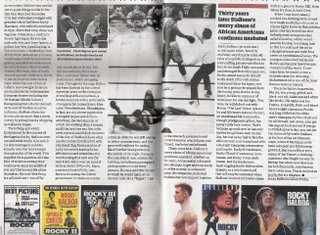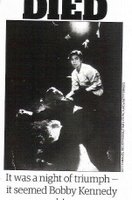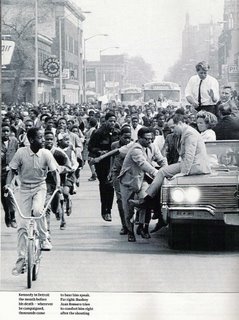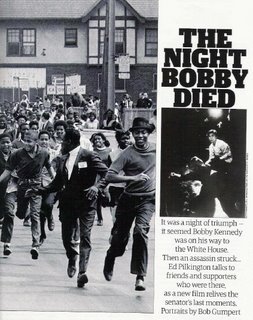 I was not blogging at the time of her passing on March 23, but the death of Elizabeth Taylor cannot go unremarked on Wordsbody, just as I could not but write a tribute, 'The Most Beautiful Star in the World', published on March 27.
I was not blogging at the time of her passing on March 23, but the death of Elizabeth Taylor cannot go unremarked on Wordsbody, just as I could not but write a tribute, 'The Most Beautiful Star in the World', published on March 27.In my tribute, I touched on my first real awareness of Elizabeth Taylor the cinema legend, whose persona in A Place in the Sun was perfection itself. That film stands forever, as a homage to youth, beauty and love undercut by their destructive impact on a tragic hero, played by Montgomery Clift - who would go on to live his own tragedy for real, a tortured genius to whose memory Taylor remained devoted for the rest of her own life. In the case of Taylor, my tribute, along with innumerable others, mentioned the ups and downs of a life lived for nearly 70 years in the blinding glare of white-hot fame. The thing about Taylor and others like Brando (Kirk Douglas is still ticking along, even making a touching appearance at the last Oscar ceremony, despite the debilitating impairment of the years) is that age does wither them. They don't live in the eternal perfections of Marilyn Monroe or James Dean, who died young.
As news of Elizabeth Taylor's death broke, there were some subtle shifts in Vanity Fair's definitive statement as to the famed beauty of the departed legend. First they wrote "No one has been more captivatingly beautiful". By the next day, it was "No one before or since has been more captivatingly beautiful". Yet sometime later, VF had settled on "No one was more captivatingly beautiful". It occured to me that Vanity Fair, which relies on the cooperation of still-living movie stars to feed the magazine's monthly Hollywood-worship, got a bit jittery and did not want to annoy current celluloid queens who would want to aspire to Elizabeth Taylor status in looks, if nothing else. But as Vanity Fair well knows, the jury closed on Taylor's violet-eyed beauty decades ago.
The gift given to Elizabeth Taylor was always an unfair one to which no ordinary Hollywood siren could aspire. That's why she was so perfect as the demi-goddess in 'Cleopatra'. In the hallway of my London flat, I still have on the wall a large framed poster of Taylor (acquired during the Elizabeth Taylor photography exhibition held at the National Portrait Gallery in London in 2000). In the black and white image, she is photographed during her Cleopatra period, judging from the hair, make-up and accessories. The tracheotomy scar on her neck is in full view, and she wears it with some defiance, like some badge, which adds an unexpected gravity to the picture perfect visage on display. The invincibility of an audacious beauty. Her face is implacable and her eyes remote, like an aloof goddess looking down on a mortal. Visitors sometimes observed, rightly, that the image on the poster made them feel small.
Before seeing on British television in the mid-80s The Love Goddesses (1965) documentary that called her "probably the most beautiful love goddess of them all" - I'd had some inkling many years before in Lagos, through a family member, then a Theatre Arts undergrad at the University of Ife, who spoke in superlatives about the beauty of one Elizabeth Taylor. I was deep in Marilyn Monroe et al by this time, but Taylor - I was like, who? He replied that if I didn't believe I should watch 'The King and I'. He made a mistake, since Deborah Kerr is actually the one who plays opposite Yul Brynner in 'The King and I'. Still, my egbon's assertion as to Taylor's looks and cinematic presence, proved true.
A sometimes overlooked aspect of Taylor's life, was what a great mother she was. She clearly would have had more than 3 biological children if Mike Todd had not had her sterilised after the painful birth of their daughter, Liza. She adopted a fourth child with her great love, Richard Burton. Not one of the children has ever gone to press - as in the tradition of dysfunctional Hollywood families - to speak of any troubles with their mother. None ever wrote a Mommie Dearest expose book, as Christina Crawford did of her Hollywood mum, Joan Crawford. Taylor seemed to have a genuinely close relationship with all her children till the very end, one of whom, Michael Wilding, looks strikingly like her and gave a glowing tribute when she passed, surrounded by her offspring. When all the husbands had fallen by the wayside, it was the children that remained. And the diamonds, of course; the old trooper, whether standing or in a wheelchair, dripped with her diamonds to the bitter end.
When Taylor launched her White Diamonds fragrance at London's Selfridges years ago, I noted one press report on her retort to an intrusive question about her love life (this was during the era of Larry Fortensky, the seventh husband and eighth marriage). "'That is a contrived little question,' she sniffed" - said one British newspaper. I also remember a much circulated appearance on the Oprah Winfrey show in the late 80s. To a personal question from the talk show host, Taylor had exclaimed and blurted out, with good humour, a decidedly British humour, "You cheeky burger!" Or was it "bugger"? Oprah squirmed a little and urged Taylor to answer the question "so we can all go home." I don't remember what the question was, or if Oprah got an answer.
Postscript to a scandal: Oft recounted in the days after Taylor's death was the scandalous beginning of her marriage to Eddie Fisher, who left 'America's Sweetheart' Debbie Reynolds and their children for his best friend's widow. Reynolds and Taylor were friends in later life and even appeared in a film together, the former paying tribute on her one-time love rival's death. As for Princess Leia herself, Carrie Fisher, she was quoted as saying last month, that if her father had to leave her mother in order to be with anybody, she was grateful it was for Taylor. Wow. And Eddie Fisher, when asked in later years about a contentious incident at the end of his marriage to Taylor (who he lost to Burton), replied, "The past is one son of a bitch." Aint that the truth.
I was a keen observer of Elizabeth Taylor's legend for most of my adult life. I watched the glorious 'flop', Cleopatra, up to 20 times - in one scene, an adoring Roman tells her, 'I have always loved you," and she, unmoved, replies, 'I have always known' - and whenever I caught A Place in the Sun on late-night British TV, I forgot about sleep and watched. I knew so much about Elizabeth Taylor, but I did not know her middle name was Rosemond, until she died. Goodbye Cleopatra, it's been grand.



































.jpg)




